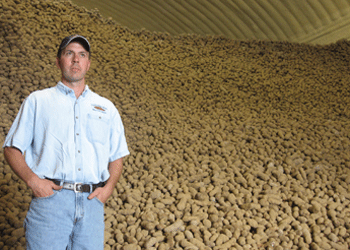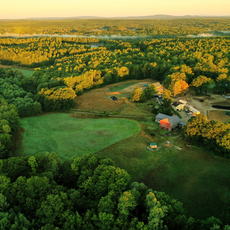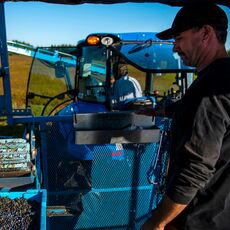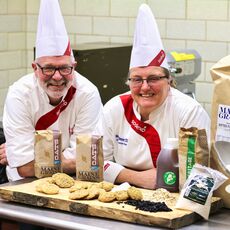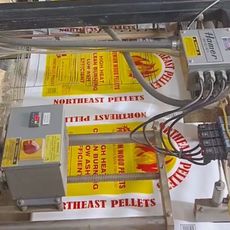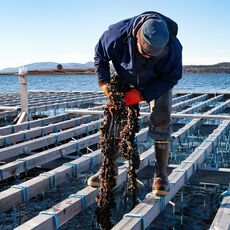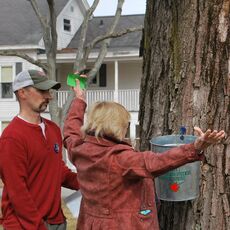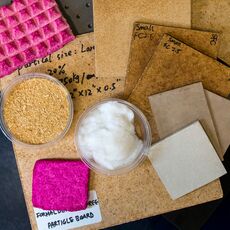Processing Your Payment
Please do not leave this page until complete. This can take a few moments.
- News
-
Editions
-
- Lists
-
Viewpoints
-
Our Events
-
Award Honorees
- 2025 Business Leaders of the Year
- 2025 Outstanding Women in Business
- 2024 Women to Watch Honorees
- 2024 Business Leaders of the Year
- 2023 NextUp: 40 Under 40 Honorees
- 2023 Women to Watch Honorees
- 2023 Business Leaders of the Year
- 2022 NextUp: 40 Under 40 Honorees
- 2022 Women to Watch Honorees
- 2022 Business Leaders of the Year
-
-
Calendar
-
Biz Marketplace
- News
- Editions
- Lists
- Viewpoints
-
Our Events
Event Info
- View all Events
- Outstanding Women in Business Reception 2025
- On The Road with Mainebiz in Bath
- 60 Ideas in 60 Minutes Portland 2025
- 40 Under 40 Awards Reception 2025
- On The Road with Mainebiz in Lewiston / Auburn
- + More
Award Honorees
- 2025 Business Leaders of the Year
- 2025 Outstanding Women in Business
- 2024 Women to Watch Honorees
- 2024 Business Leaders of the Year
- 2023 NextUp: 40 Under 40 Honorees
- 2023 Women to Watch Honorees
- + More
- 2023 Business Leaders of the Year
- 2022 NextUp: 40 Under 40 Honorees
- 2022 Women to Watch Honorees
- 2022 Business Leaders of the Year
- Nomination Forms
- Calendar
- Biz Marketplace
Agriculture
Mars Hill potato farmer chosen for nat'l ad campaign
The Mainebiz News Staff May 15, 2009Darrell McCrum, co-owner of the largest potato farm in Maine, was in New York City this week as part of a national Frito Lay ad campaign.
-
Maine agribusinesses can get free equipment to handle SNAP sales
Staff May 10, 2021The state’s Farm Food Access Program provides reimbursement for the equipment, helping agribusinesses easily sell to the roughly one in eight Mainers who receive federal SNAP benefits.
Staff May 10, 2021Common Ground Country Fair will be in-person — if volunteers step up
Staff Updated: May 10, 2021The Maine Organic Farmers & Gardeners Association's September fair, which draws as many as 60,000 attendees to the organization's Unity fairgrounds, will be a live event, provided it can muster 2,000 volunteers to help out.
Staff Updated: May 10, 2021Bank, environmental group partner to plant orchard at Ecology School in Saco
Staff May 3, 2021Fruit trees and nut shrubs will form an educational orchard that fits the environmental school’s overall mission.
Staff May 3, 2021Climate change may hurt Maine's wild blueberry industry, but growers can lessen the risk
Staff Updated: April 27, 2021Growers will need to be prepared for future warming and water loss as the climate warms, according to a new study. Strategies could include irrigation, soil amendments, predictive production models and remote sensing techniques.
Staff Updated: April 27, 2021Four Maine farms receive $200K in grants to scale up wholesale operations
Staff April 26, 2021The funding, to be matched by the recipients own money, will pay for equipment, infrastructure and other necessities to increase the farms' sales to wholesalers.
Staff April 26, 2021Lisbon aquaponics farm is expanding faster than greenhouse lettuce
Maureen Milliken April 21, 2021Springworks Farm, which uses aquaponics to grow greens that are sold to Hannaford, Whole Foods, and others, will triple its output once a 40,000-square-foot greenhouse is completed next month, and plans four more greenhouses in the next five years.
Maureen Milliken April 21, 2021Maine grocers look to cut food waste, but so far progress is a mixed bag
William Hall Updated: April 27, 2021Hannaford Supermarkets has attracted attention for its efforts to reduce food waste, but other major grocers are trying to do the same — sometimes with mixed results.
William Hall Updated: April 27, 2021Food services giant Sodexo says it will spend $1M in Maine this year
Renee Cordes Updated: April 13, 2021The French food services and facilities management company, which employs 760 people in Maine, aims to get back on track to pre-pandemic spending levels statewide.
Renee Cordes Updated: April 13, 2021After devastating fire, Aroostook pellet maker adds automation, grows capacity
Laurie Schreiber April 6, 2021A year-long rebuild followed by restoring the customer and supplier base positioned the company to weather the pandemic with installation of automated machinery that doubled production.
Laurie Schreiber April 6, 2021MOFGA launches diversity, equity training for agricultural service providers
Staff April 2, 2021A training program running through September 2024 will support the the industry's understanding of how to make Maine farming more equitable for its increasingly diverse producers.
Staff April 2, 2021FocusMaine results report shows growth in targeted industries, even through pandemic
Staff April 1, 2021During the pandemic, Maine’s food, beverage and aquaculture businesses developed innovative products and opened new sales channels, while the life sciences industry helped speed virus detection and vaccine development, according to a new report.
Staff April 1, 2021'We're ready' is maple producers' rallying cry as Maine Maple Sunday approaches
Staff March 8, 2021Traditionally held the fourth weekend of March, last year's maple celebration was shut down as the COVID-19 pandemic spread. This year's event is set for March 27-28, with guidelines in place to protect participants' health.
Staff March 8, 2021Making in Maine matters: Small manufacturers find success in the state's brand
Maureen Milliken Updated: March 8, 2021For products ranging from flags to frozen treats, the "made in Maine" identity is a valuable asset. Small businesses are discovering just how valuable as their goods see demand far beyond the state's borders.
Maureen Milliken Updated: March 8, 2021Maine forest products are ready for their closeup in video premiere at SXSW festival
Staff Updated: March 3, 2021Known for music and film, the South By Southwest Conference also highlights technological innovation. UMaine’s wood product advancement will be featured in a short video showcased in the Finland pavilion.
Staff Updated: March 3, 2021Portland-based ImmuCell reports sales increase, advances toward product release
Staff February 24, 2021The biotech company submitted the final part of a regulatory application for a new product, which could begin launching later this year. Sales of ImmuCell's current product are increasing and the company is catching up on a backlog of demand.
Staff February 24, 2021Maine marijuana businesses, including some from away, are growing like a weed
William Hall February 12, 2021As sales grow in both the state's medical and recreational-use cannabis markets, several businesses outside of Maine are looking to cultivate new customers here.
William Hall February 12, 2021
Today's Poll
Poll DescriptionThe Portland City Council is weighing a controversial proposed hike to the city’s minimum wage.
The proposal would increase the minimum wage from $15.50 per hour to $19 per hour by 2028. (The statewide hourly minimum wage is $14.65.)
The proposal does not include a wage hike for tipped workers who are currently paid an hourly wage of $7.75, but employers are required to ensure that wages and tips combined total $15.50 per hour.
While inflation pressures have made it hard to survive on the minimum wage, many business owners are concerned the hike would cut already thin margins.

The Giving Guide
The Giving Guide helps nonprofits have the opportunity to showcase and differentiate their organizations so that businesses better understand how they can contribute to a nonprofit’s mission and work.
Learn More
Work for ME
Work for ME is a workforce development tool to help Maine’s employers target Maine’s emerging workforce. Work for ME highlights each industry, its impact on Maine’s economy, the jobs available to entry-level workers, the training and education needed to get a career started.
Learn More
Groundbreaking Maine
Whether you’re a developer, financer, architect, or industry enthusiast, Groundbreaking Maine is crafted to be your go-to source for valuable insights in Maine’s real estate and construction community.
Learn more-
The Giving Guide
The Giving Guide helps nonprofits have the opportunity to showcase and differentiate their organizations so that businesses better understand how they can contribute to a nonprofit’s mission and work.
-
Work for ME
Work for ME is a workforce development tool to help Maine’s employers target Maine’s emerging workforce. Work for ME highlights each industry, its impact on Maine’s economy, the jobs available to entry-level workers, the training and education needed to get a career started.
-
Groundbreaking Maine
Whether you’re a developer, financer, architect, or industry enthusiast, Groundbreaking Maine is crafted to be your go-to source for valuable insights in Maine’s real estate and construction community.
ABOUT
NEW ENGLAND BUSINESS MEDIA SITES
No articles left
Get access now
In order to use this feature, we need some information from you. You can also login or register for a free account.
By clicking submit you are agreeing to our cookie usage and Privacy Policy
Already have an account? Login
Already have an account? Login
Want to create an account? Register
This website uses cookies to ensure you get the best experience on our website. Our privacy policy
To ensure the best experience on our website, articles cannot be read without allowing cookies. Please allow cookies to continue reading. Our privacy policy
